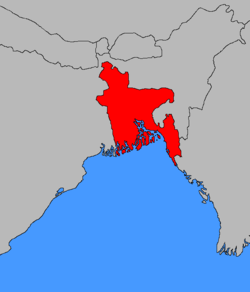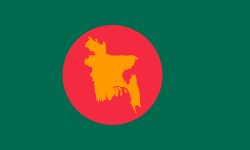Foundation
At a meeting held on 30 August 1942, at the offices of the Azad newspaper in Kolkata, Bengali Muslim activists decided to form the East Pakistan Renaissance Society as a platform to advocate the idea of a Muslim state on a cultural and intellectual basis. The society held regular weekly meetings where articles would be presented and different issues discussed. Despite the focus on Islam, the meetings were not restricted to Muslims. [4] Manabendranath Roy delivered a speech on Pakistan and Democracy, which highlighted the inevitability of self-rule for Indian Muslims. [4] In September 1944, Mujibur Rahman Khan along with economist M Sadeq, published a booklet, Eastern Pakistan: Its Population, Delimitation and Economics which contained a description of the government, economy, population, geographic boundary and security of a future state of East Pakistan. [4]
The society held its first council at the Islamia College in Kolkata in July 1944. Among those present at the inaugural occasion were Khwaja Nazimuddin, Huseyn Shaheed Suhrawardy, Hasan Suhrawardy, Nurul Amin, Mohammad Akram Khan, A K Fazlul Huq, Abul Quasem, Maulvi Tamizuddin Khan, Shahadat Hossain, Golam Mostofa, S Wajid Ali, Abu Jafar Shamsuddin, Abul Hussain, Golam Kuddus, Subhas Mukhopadhyay, Gopal Halder. [4]




